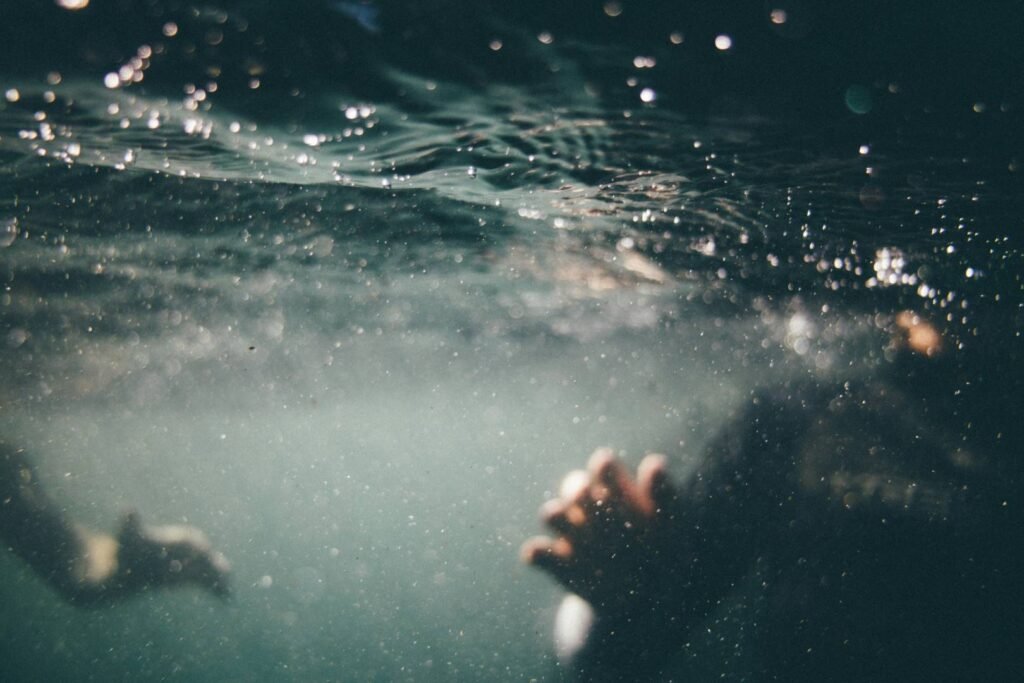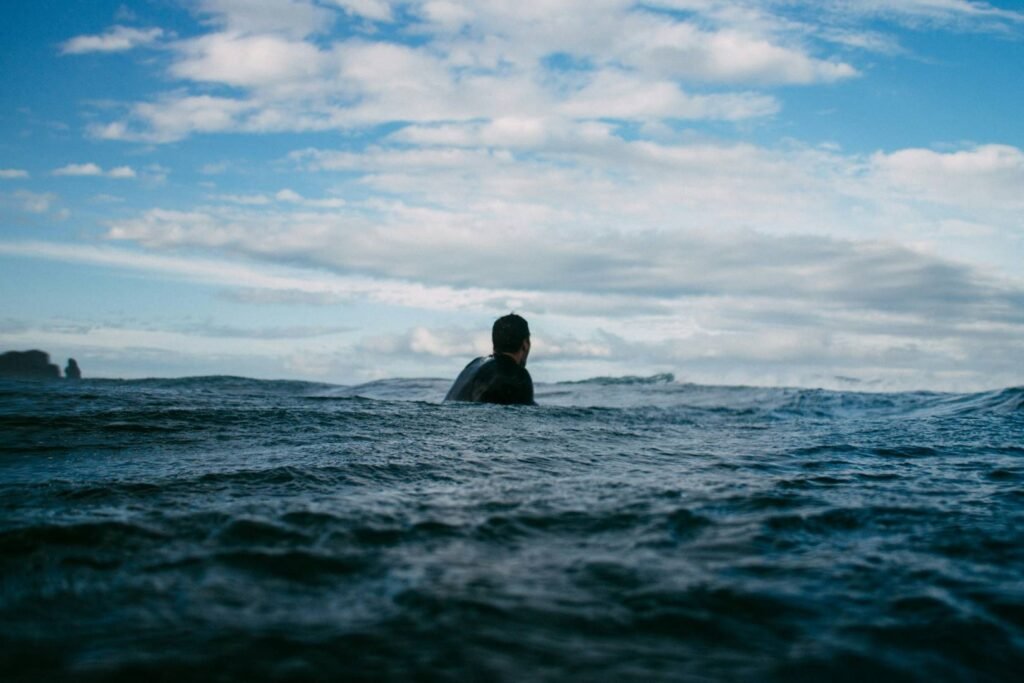In the vast expanse of the open sea, the prospect of falling overboard is a serious concern that demands attention from maritime enthusiasts and professionals alike.
While sailing or cruising can be an exhilarating experience, understanding the common causes of overboard incidents is crucial for ensuring the safety of those on board. From unexpected maneuvers to adverse weather conditions, various factors contribute to the risk of individuals falling overboard.
What Exactly Causes Someone to Fall Overboard?

On much smaller boats such as motorboats or sailboats, the most common cause is someone simply standing up whilst the boat is in motion. However, the chances of falling overboard only increase if the boat is swaying a lot or the person who is handling the boat did not prepare for the situation.
On much bigger boats and ships, such as a fancy cruise ships, falling overboard is usually related to being intoxicated. To avoid falling overboard on your next big cruise holiday, you need to make sure you are being careful and using common sense.
If you are intoxicated, avoid getting too close to the edge of the boat, especially if the boat is moving over rough seas.
When a person stands on a boat, they are sacrificing balance and since waves can be unpredictable, so can the boat’s movement. If there is alcohol involved too, this can significantly impair balance.
In a nutshell, carelessness is the main cause of people falling overboard when at sea. On smaller boats and sailboats, if you need to stand up, you need to hold on, especially if the boat is moving fast.
A boat is a moving vessel, and this means it sways through all kinds of waves. If a person stands without keeping a hand on the boat, falling in the water is sometimes inevitable.
Moreover, if passengers all stand up at the same time, the boat’s center of gravity is heightened. When this happened, the boat sits a lot higher on the water, and this can make it more prone to erratic movement.
5 Reasons People fall Overboard

Here, we explore some of the most likely causes and offer insights on preventative measures to mitigate these risks.
1. Rough Seas and Unpredictable Waves:
One of the primary causes of overboard incidents is the unpredictability of the sea itself. Rough seas, sudden waves, and choppy waters can catch even the most experienced sailors off guard. Maintaining a firm grip on handrails, wearing a life jacket, and avoiding unnecessary movements during challenging conditions are key precautions to minimize the risk of falling overboard.
2. Sudden Maneuvers and Unstable Deck Conditions:
Sharp turns, abrupt stops, or unexpected maneuvers can easily throw individuals off balance, leading to potential overboard situations. Ensuring a stable footing and using caution when navigating unstable or wet decks can significantly reduce the likelihood of accidents.
Crew members should be briefed on proper procedures during maneuvers, emphasizing the importance of holding onto secure handholds.
3. Failure to Wear Proper Safety Gear:
Neglecting to wear appropriate safety gear, such as life jackets and harnesses, significantly increases the risk of falling overboard. Life jackets are a critical component of maritime safety, providing buoyancy and visibility in the water. Additionally, harnesses tethered to the vessel offer an extra layer of protection, especially during adverse weather conditions.
4. Lack of Safety Railings and Guardrails:
Inadequate safety infrastructure, such as missing or damaged guardrails and safety railings, poses a serious risk on boats and ships. Regular maintenance checks and repairs are essential to ensure that all safety features are in optimal condition. Installing additional handholds and guardrails in vulnerable areas can further enhance the safety of passengers and crew members.
5. Inattentiveness and Distractions:
Distractions on board, such as electronic devices, conversations, or other activities, can divert attention away from the immediate surroundings. Maintaining focus and situational awareness is crucial to avoiding overboard incidents.
Individuals should be reminded to stay vigilant, especially during critical moments, and to minimize distractions that could compromise their safety.
Rules to Follow While you’re onboard
To keep everyone safe when onboard, all boats have the same rule. This is because when standing or moving around the boat, you should always have at least one hand on the boat.
If you become careless about this rule and are not cautious whilst onboard the ship, you could risk falling overboard.
- A lot of boats have handholds dotted all over the place for you to grab and hold on to, as well as multiple toe rails and lifelines to keep you as safe as possible.
- To keep safe onboard, you should also avoid going on to the deck when the weather is windy, or if the boat is caught in any other bad weather.
- If you must go on deck, we suggest wearing a harness that is fastened to jack lines and always keeping one hand on the boat.
- Decks can be unsafe, especially on smaller boats such as sailboats when the boat is in motion.
- To avoid unwanted and unsafe situations, always be aware of your surroundings, stay as calm as possible and stay sober when navigating a deck.
- If you do not pay attention to this advice or become intoxicated before going on deck, you could fall overboard.
- Other than intoxication or carelessness, you might wonder why someone would stand on a moving vessel. The third most common reason is fishing.
- It’s very common for anglers to stand when they are fishing. It means they can move their rod and fight fish a lot easier than if they were sitting.
However, this might cause some unexpected overboard passenger problems. This is why anglers should also take note of this and wear a certified personal floatation device when fishing.
What Should You Do If You Fall Overboard?

When a person falls overboard, they need to stay as calm as possible. Though this might seem impossible, you would need to try and stay positive, hopeful and most of all relaxed.
This will help you survive and make it easier to float. Always remember to float rather than swim and remembering all of this can make the difference between life and death.
When you float, you can regain control of your senses and breathe again, and floating restricts your movement, which allows you to conserve your energy. To save as much energy as you can, the passenger should try to lie down flat on their back and keep their head just above the water.
They should bend their back and spread their arms to the side, letting their legs hang up in a stretched position. You can also perform what is known as the dead man’s float. To do this, you need to take the biggest breath possible before placing your face in the water.
You then need to relax your body and let it hang loose. When you need to take in more air, simply lift your head and breathe in, then move your limbs slightly to keep you afloat. Inhale and exhale deeply, and then do it all again.
Someone who falls overboard and gets rescued has usually stayed calm and relaxed and has been able to follow rescuers’ instructions to increase their chances of survival.
You may also like,
- Carnival cruise Ship overboard Accidents – Why?
- Somali Pirates & Piracy in 2024
- What causes Megalohydrothalassophobia – Fear of Large Bodies of Water
Conclusion:
As maritime enthusiasts and professionals continue to enjoy the beauty of the open sea, prioritizing safety measures is paramount. By understanding and addressing the common causes of overboard incidents, individuals can actively contribute to a safer and more secure maritime environment.
Whether through proper training, the use of safety equipment, or the implementation of preventative measures, everyone on board plays a crucial role in minimizing the risks associated with falling overboard.

